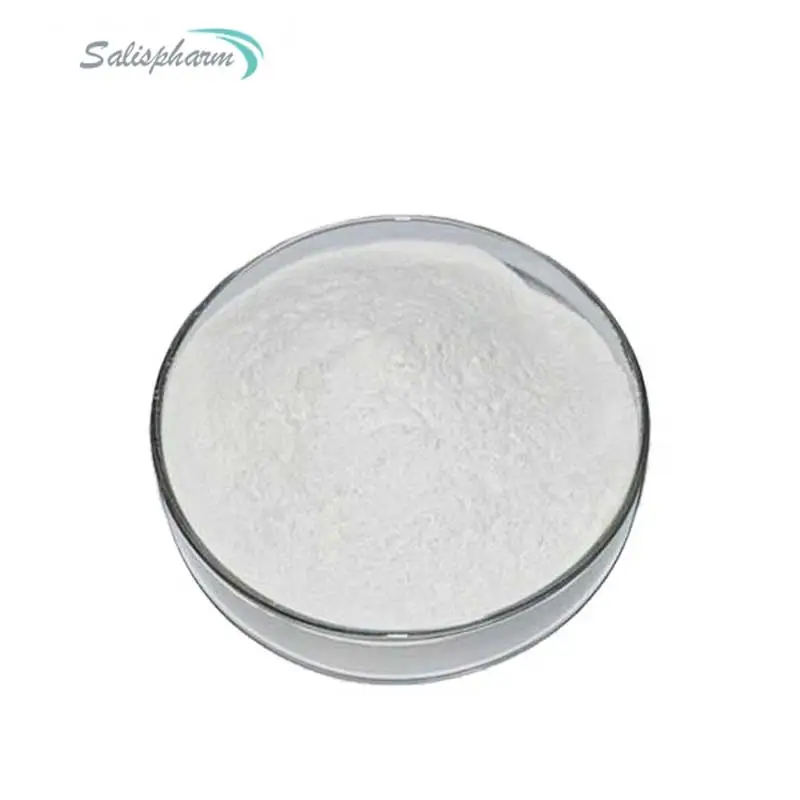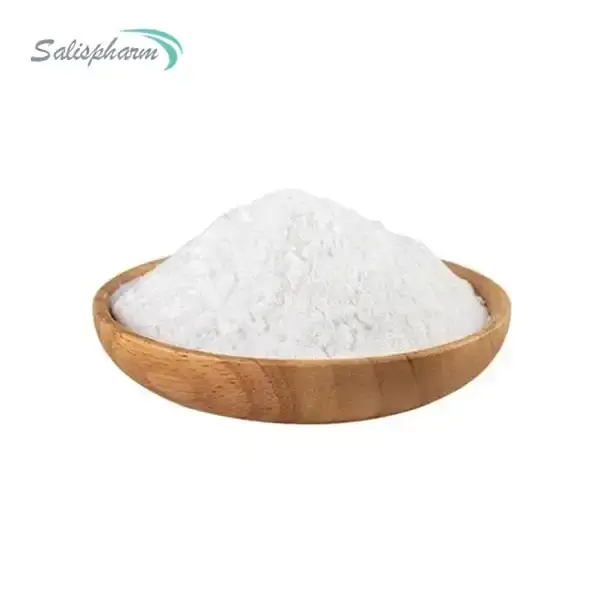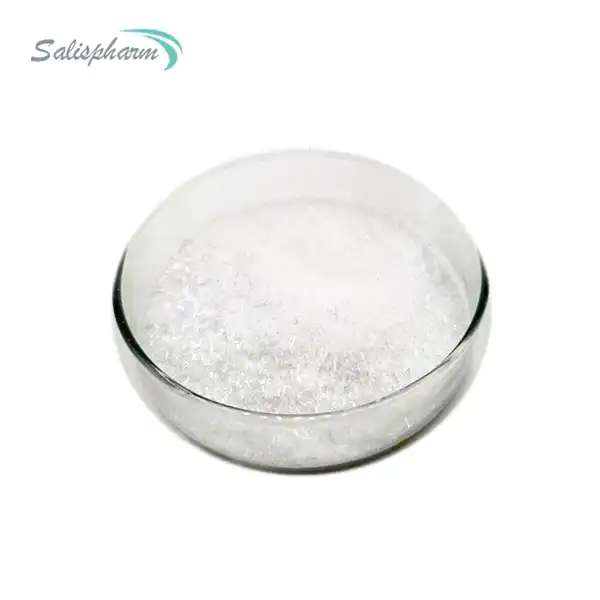Omeprazole is a widely used medication for treating various gastrointestinal issues, primarily acid reflux and stomach ulcers. As more people seek cost-effective alternatives to prescription medications, questions about the safety and efficacy of omeprazole powder, especially for daily use, have become increasingly common. This article explores the potential benefits and risks of taking omeprazole powder every day, addressing key concerns and providing insights based on current medical knowledge.
What are the long-term effects of taking omeprazole powder daily?
Omeprazole belongs to a class of drugs called proton pump inhibitors (PPIs), which work by reducing stomach acid production. While it's generally considered safe for short-term use, the long-term effects of daily omeprazole powder consumption warrant careful consideration.
- Potential Benefits:
For individuals suffering from chronic acid reflux or gastroesophageal reflux disease (GERD), daily use of omeprazole powder can provide significant relief. It helps prevent damage to the esophagus and reduces the risk of complications such as Barrett's esophagus or esophageal cancer. In cases of Zollinger-Ellison syndrome, a rare condition causing excessive stomach acid production, long-term PPI use is often necessary and beneficial.
- Possible Risks and Side Effects:
However, prolonged daily use of omeprazole powder is not without risks. Some potential long-term effects include:
1. Nutrient Deficiencies: Reduced stomach acid can impair the absorption of certain nutrients, particularly vitamin B12, calcium, iron, and magnesium. This may lead to deficiencies over time, potentially causing issues like anemia or osteoporosis.
2. Increased Risk of Infections: Lower stomach acid levels can make the digestive system more susceptible to bacterial overgrowth, potentially increasing the risk of infections like Clostridium difficile.
3. Kidney Problems: Some studies have suggested a possible link between long-term PPI use and an increased risk of chronic kidney disease or acute kidney injury.
4. Bone Fractures: There's evidence that prolonged PPI use may slightly increase the risk of bone fractures, particularly in older adults.
5. Rebound Acid Hypersecretion: When stopping omeprazole after long-term use, some people experience a temporary increase in acid production, which can worsen symptoms.
It's important to note that these risks are generally associated with prolonged use over many years. For most people, the benefits of managing severe acid reflux or ulcers outweigh these potential risks. However, it's crucial to use omeprazole powder under medical supervision and to regularly reassess the need for continued use.
How does omeprazole bulk powder compare to prescription omeprazole?
As consumers seek more affordable options for managing their health, omeprazole bulk powder has gained attention as a potential alternative to prescription omeprazole. Understanding the similarities and differences between these forms is crucial for making informed decisions about their use.
- Similarities:
1. Active Ingredient: Both prescription omeprazole and omeprazole bulk powder contain the same active ingredient, omeprazole. This means they work in the same way to reduce stomach acid production.
2. Effectiveness: When used correctly, omeprazole bulk powder can be as effective as prescription omeprazole in treating conditions like GERD, acid reflux, and stomach ulcers.
3. Dosage Options: Both forms allow for flexible dosing, although this should always be done under medical guidance.
- Differences:
1. Regulation and Quality Control: Prescription omeprazole is subject to strict FDA regulations and quality control measures. Omeprazole bulk powder, especially when purchased from less reputable sources, may not undergo the same rigorous testing and quality assurance processes.
2. Purity and Consistency: Pharmaceutical-grade prescription omeprazole is guaranteed to have consistent purity and potency. Bulk powder may vary in quality and concentration, potentially affecting its effectiveness and safety.
3. Formulation: Prescription omeprazole often comes in enteric-coated capsules or tablets, designed to protect the drug from stomach acid and ensure proper absorption. Bulk powder lacks this protective coating, which may affect its efficacy and increase the likelihood of side effects.
4. Ease of Use: Prescription omeprazole is pre-measured and easy to take. Using bulk powder requires careful measurement and preparation, which can lead to dosing errors if not done correctly.
5. Medical Oversight: Prescription omeprazole is typically used under direct medical supervision, with regular check-ups to monitor effectiveness and potential side effects. Those using bulk powder may not have this level of medical oversight.
Given these differences, it's crucial to approach the use of omeprazole bulk powder with caution. While it may offer a cost-effective alternative, the potential risks associated with unregulated use and variable quality cannot be overlooked. Individuals considering omeprazole bulk powder should consult with a healthcare provider to discuss the appropriateness of this option for their specific situation and to ensure proper usage and monitoring.
Can omeprazole powder interact with other medications or supplements?
Understanding potential drug interactions is crucial when considering daily use of omeprazole powder, as it can significantly impact the effectiveness and safety of both omeprazole and other medications or supplements.
- Known Interactions:
1. Anticoagulants: Omeprazole may enhance the effect of blood thinners like warfarin, potentially increasing the risk of bleeding. Close monitoring of blood clotting times is essential for patients taking both medications.
2. Antifungal Medications: Omeprazole can reduce the absorption of certain antifungal drugs, such as ketoconazole and itraconazole, potentially making them less effective.
3. HIV Medications: Some antiretroviral drugs, like atazanavir and nelfinavir, may have reduced effectiveness when taken with omeprazole.
4. Clopidogrel: Omeprazole can interfere with the activation of clopidogrel, an antiplatelet medication, potentially reducing its effectiveness in preventing blood clots.
5. Methotrexate: Omeprazole may increase blood levels of methotrexate, a medication used for cancer treatment and autoimmune disorders, potentially leading to increased side effects.
- Mechanisms of Interaction:
Omeprazole primarily interacts with other drugs through two main mechanisms:
1. Alteration of Stomach pH: By reducing stomach acid, omeprazole can affect the absorption of drugs that rely on an acidic environment for proper dissolution and absorption.
2. Enzyme Inhibition: Omeprazole inhibits certain liver enzymes, particularly CYP2C19, which can affect the metabolism of various medications, potentially leading to increased blood levels and enhanced effects or side effects.
- Precautions and Recommendations:
1. Full Disclosure: Always inform your healthcare provider about all medications, supplements, and herbal products you're taking, including omeprazole powder.
2. Timing of Administration: In some cases, separating the timing of omeprazole and interacting drugs can help mitigate interactions. For example, taking omeprazole at least 2 hours before or after antifungal medications.
3. Regular Monitoring: If you're taking medications known to interact with omeprazole, your doctor may recommend more frequent blood tests or monitoring to ensure safe and effective treatment.
4. Alternative Medications: In some cases, your healthcare provider may recommend alternative acid-reducing medications with fewer interactions, such as H2 blockers like famotidine.
5. Dose Adjustments: Your doctor may need to adjust the dosage of omeprazole or other medications to account for potential interactions.
Conclusion
While omeprazole powder can be an effective treatment for acid-related gastrointestinal issues, daily use requires careful consideration of potential long-term effects and drug interactions. The decision to use omeprazole powder daily should be made in consultation with a healthcare provider, taking into account individual health needs, potential risks, and alternative treatment options. Regular medical supervision and periodic reassessment of the need for continued use are crucial to ensuring safe and effective long-term management of acid-related conditions. As with any medication, the benefits of omeprazole powder should be weighed against its potential risks, and users should remain vigilant about any changes in their health or the effectiveness of their other medications.
If you are also interested in this product and want to know more product details, or want to know about other related products, please feel free to contact iceyqiang@gmail.com.
References:
1. Strand, D. S., Kim, D., & Peura, D. A. (2017). 25 Years of Proton Pump Inhibitors: A Comprehensive Review. Gut and Liver, 11(1), 27-37.
2. Jaynes, M., & Kumar, A. B. (2019). The risks of long-term use of proton pump inhibitors: a critical review. Therapeutic Advances in Drug Safety, 10, 2042098618809927.
3. Freedberg, D. E., Kim, L. S., & Yang, Y. X. (2017). The Risks and Benefits of Long-term Use of Proton Pump Inhibitors: Expert Review and Best Practice Advice from the American Gastroenterological Association. Gastroenterology, 152(4), 706-715.
4. Kinoshita, Y., Ishimura, N., & Ishihara, S. (2018). Advantages and Disadvantages of Long-term Proton Pump Inhibitor Use. Journal of Neurogastroenterology and Motility, 24(2), 182-196.
5. Vaezi, M. F., Yang, Y. X., & Howden, C. W. (2017). Complications of Proton Pump Inhibitor Therapy. Gastroenterology, 153(1), 35-48.
6. Eusebi, L. H., Rabitti, S., Artesiani, M. L., Gelli, D., Montagnani, M., Zagari, R. M., & Bazzoli, F. (2017). Proton pump inhibitors: Risks of long-term use. Journal of Gastroenterology and Hepatology, 32(7), 1295-1302.
7. Bavishi, C., & Dupont, H. L. (2011). Systematic review: the use of proton pump inhibitors and increased susceptibility to enteric infection. Alimentary Pharmacology & Therapeutics, 34(11-12), 1269-1281.
8. Poly, T. N., Islam, M. M., Yang, H. C., Wu, C. C., & Li, Y. J. (2019). Proton pump inhibitors and risk of hip fracture: a meta-analysis of observational studies. Osteoporosis International, 30(1), 103-114.
9. Katz, P. O., Gerson, L. B., & Vela, M. F. (2013). Guidelines for the diagnosis and management of gastroesophageal reflux disease. The American Journal of Gastroenterology, 108(3), 308-328.
10. Maes, M. L., Fixen, D. R., & Linnebur, S. A. (2017). Adverse effects of proton-pump inhibitor use in older adults: a review of the evidence. Therapeutic Advances in Drug Safety, 8(9), 273-297.








